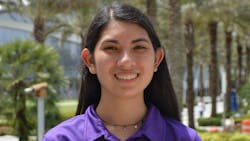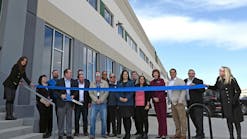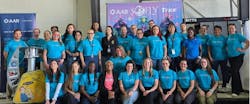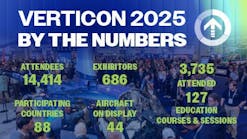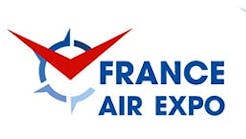Advice from a First-Generation Student: 'Never. Give. Up.'
Sept. 9, 2021
Related To:
Aerospace Engineering junior Elena Djudaric grew up watching her father sacrifice for the betterment of their family.
He moved to the United States from the former Yugoslavia with hardly anything packed from back home and eventually met Djudaric’s mother, who emigrated from the Philippines. He worked, a lot, multiple jobs. And he always kept the end in mind, reinforcing to her once she began considering college that “It’s better to cry for four years than cry for 40.” That adage would go on to guide her as she endeavored to become the first in her family to earn a college education.
“Remembering that quote helps push me through some of my academic challenges,” the Orlando, Florida, native said. “My family’s constant support is my biggest inspiration in getting where I am today.”
A recent recipient of a James W. and Essie W. Barfield Endowed Scholarship, as well as a second scholarship from The Miami Foundation, Djudaric remembers calling her dad immediately after hearing the news of both wins, and he encouraged her. Today, she aims to similarly encourage fellow first-generation students throughout Embry-Riddle Aeronautical University’s Daytona Beach Campus.
“I have become more involved with student organizations,” she said, citing leadership positions in the Society of Women Engineers (president) and the First Generation Students Association (treasurer), as well as a spot as a percussionist on the Embry-Riddle Pep Band. “I am passionate about helping out other first-generation college students, since I am one myself.”
The biggest challenge she faced in starting her college career was simply knowing where and how to find help. That’s where the Discover Embry-Riddle program, an initiative that turned out to be the most impactful to her early on in her tenure on campus, came in.
“The Discover program is designed to provide a bridge for incoming first-generation students to the Embry-Riddle community,” said Rich Nicols, assistant dean for retention and parent/student programs. “Starting three days before orientation, the program continues throughout students’ first year, offering peer mentors, scholarships, a living-learning community, tutoring, social engagements and the first-generation student club.”
“The program gave me a feel of community with other fellow first-gen peers, and a place to ask for help and network with university faculty,” Djudaric said. “Now, two years later, I have become a mentor and team lead for this program.”
As such, she shares her experience transitioning from high school to college with freshmen, offers advice and routinely checks in on them to see how they’re doing.
“A piece of advice I would give to incoming first-gen students is to take opportunities, apply for that scholarship or job, make some new friends, take care of yourself and, most importantly, never be afraid to ask for help,” Djudaric said. “There are others who have felt or may be feeling the exact same way as you and, eventually, they got through it. Never. Give. Up.”
Nicols echoed that sentiment.
“Without question, the connections students make with other first-generation students is key,” he said. “The experiences they share foster bonds not only with their peers, but with the student leaders and staff who provide support through their first year and beyond.”
Since the inception of the Discover Embry-Riddle program in 2017, it has supported nearly 200 students. Additionally, the retention rate for first-generation students who participate in the program consistently outpaces that of non-member first-generation students annually.
After graduation, Djudaric dreams of pursuing a career in the aerospace sector, “working to make space more accessible.”
